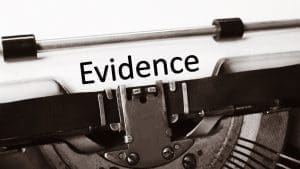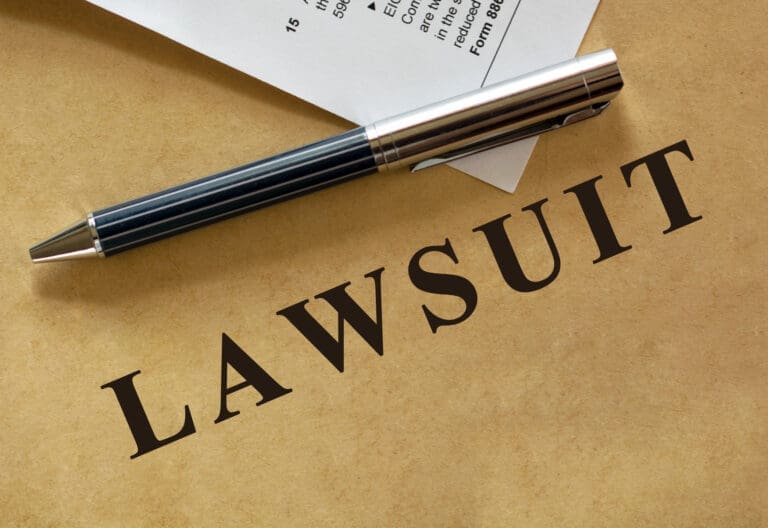By Kirk Tarman, Criminal Defense Attorney in San Bernardino County, California. Originally published in 2007 and reposted with permission from Crime, Justice and America magazine

This article is designed to give a layperson a superficial understanding of a motion to suppress.
Basically when an attorney says that he is going to attempt to suppress evidence in a criminal case, he is stating that he wants to keep some of the evidence from being used against the defendant. The statutory basis for suppressing evidence in California is Penal Code §1538.5 which states in part:
(a)(1) A defendant may move for the return of property or to suppress as evidence any tangible or intangible thing obtained as a result of a search or seizure on either of the following grounds:
(A) The search or seizure without a warrant was unreasonable.
(B) The search or seizure with a warrant was unreasonable because any of the following apply:
(i) The warrant is insufficient on its face.
(ii) The property or evidence obtained is not that described in the warrant.
(iii) There was not probable cause for the issuance of the warrant.
(iv) The method of execution of the warrant violated federal or state constitutional standards.
(v) There was any other violation of federal or state constitutional standards.

The timing of the motion to suppress can be crucial, especially in felony cases, where if the attorney is given an opportunity there may be three attempts (count ‘em three) at suppressing the evidence. Even though the second and third attempt are a little limited, it is still a great opportunity for a defendant.
So when can an individual attempt to suppress evidence? The three most common situations are-when a person has been personally searched; when the cops search a vehicle, and when the cops search a house, and of course when the cops find some “thing” during the search.
But to even argue that you have the right to suppress evidence being used against you, you must also have what is commonly called “standing” or a legal expectation of privacy in the area searched. Whoa!! What the heck is that? I’ll give you a simple scenario to illustrate what “standing” is.
Imagine a room with three people in it. John who owns the house, and has bills and mail delivered to the house, Paula that is just visiting to watch a baseball game, and Steve, who is crashing at John’s home while he works out some marriage issues and has spent the night for the past week.

Now the cops bust into the house, and lo-and-behold there is a pound of cocaine on the top of the television, and the cops decide to arrest John (the owner), Paula (the visitor), and Steve (the overnight guest).
After their arraignment all of the above defendants’ attorneys file ‘motions to suppress’.
At the hearing the judge asked each of the attorneys to prove standing, or in other words prove that the defendant has some legally recognized right of privacy in the home that was invaded by the police.
John submits evidence including bills, and mortgage documents. Paula’s attorney is unable to present any evidence that indicates that she has any legal right of privacy in John’s home. Steve has his wife testify that he’s been staying at John’s home, and he has standing, because in most situations an overnight guest does have standing. Of course, Steve has just hurt the issue regarding whether he had dominion, control, or knowledge of the drugs (but that’s a different article).
I have seen prosecutors (and the judge allowed it) argue that a defendant didn’t have standing because they were not staying at the home etc., and then at trial argue that of course the person was aware of the drugs in the home, they were staying at the house for months. Crazy stuff.
In any event, the first thing that must be shown is standing or legally recognized expectation of privacy in a place that is searched. Standing can be a tricky issue, and there is much more to it than can be placed in this article.
The second thing is to see if there has been a violation of that person’s rights, or in other words, was the search reasonable under the circumstances.

The first thing to do to see if the search was reasonable/lawful, is to ascertain if there is a search warrant. Because, once there is a search warrant the search is presumed to be legal. Which is a fancy way of saying the defendant now has to prove that the search was unreasonable. If there isn’t a search warrant (usually) the search is presumed to be unreasonable, or in other words, the prosecutions has to prove that the search was reasonable.
If there is a warrant it is usually composed of three general sections. The warrant document itself, the list of the items that are to be searched for, and the probable cause statement or affidavit.
If there is a warrant , there a couple of broad categories that are used to attack the warrant the traverse, and the quash.
The traverse is generally used to argue that the affidavit, or statement of probable cause is not accurate, truthful or complete.
The quash argues that even assuming the affidavit is true, there is still not enough evidence to issue the search warrant.
Disclaimer. This article is extremely superficial. It is not meant to take the place of advice from an attorney. The article’s goal is to give a layperson a mere framework, and some familiarity with the language that is used in the justice system.
For the ease of the reader, this article does not cite to case law, and rarely cites to statutes. It should not be considered a legal document but a mere glimpse at much deeper and complicated subject matter.








